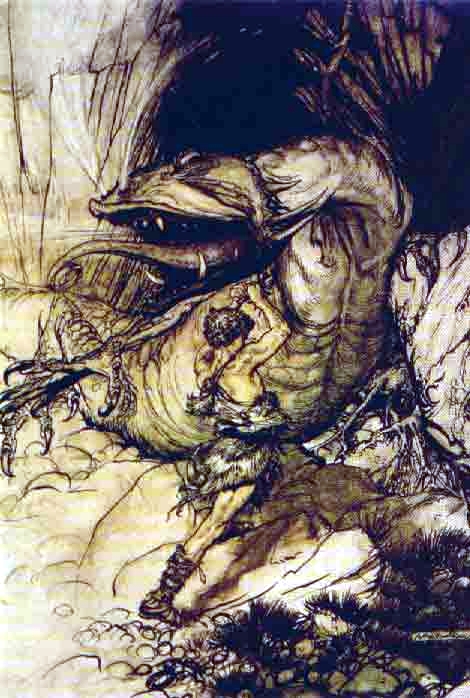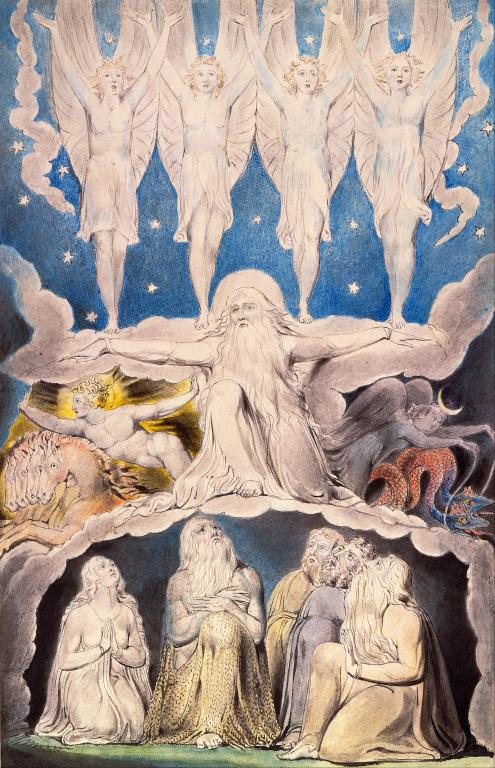David Russell Mosley
 Lent 5 April 2014 On the Edge of Elfland Beeston, Nottinghamshire Dear Friends and Family, Over at Christ and University, Matt Moser has written another post about teaching Dante to which I feel inclined to respond. Moser notes and laments that as he and his students (along with Dante) entered Paradise in the Commedia, the students found it boring. As Moser himself notes, this is somewhat to be expected. Even in the best translation, this is still a translation of sixteenth century Italian epic poem. Even the Paradiso is filled with political and contemporary (to Dante) commentary. This, however, was not the centre of their boredom, rather the happiness was.
Lent 5 April 2014 On the Edge of Elfland Beeston, Nottinghamshire Dear Friends and Family, Over at Christ and University, Matt Moser has written another post about teaching Dante to which I feel inclined to respond. Moser notes and laments that as he and his students (along with Dante) entered Paradise in the Commedia, the students found it boring. As Moser himself notes, this is somewhat to be expected. Even in the best translation, this is still a translation of sixteenth century Italian epic poem. Even the Paradiso is filled with political and contemporary (to Dante) commentary. This, however, was not the centre of their boredom, rather the happiness was.  Moser goes on to relate his own acquisition of an appetite for joy which was kindled by a reading of The Lord of the Rings.
Moser goes on to relate his own acquisition of an appetite for joy which was kindled by a reading of The Lord of the Rings.
He remembers how he had to foster an appetite for joy just as he had to foster an appetite for classical music. Moser again asks the question of how do we do this for those we teach, how do we help them foster an appetite for joy? In my previous response to Moser’s challenges on teaching Dante, I suggested that living in such a way that shows our belief in a cosmos (unity, order, harmony, created). Today, I wonder if another possible answer, or first step is the reading of fairy-tales. Spending too much time talking about fairy-tales can make a person seem rather childish. But what was it Lewis said, when I became a man I ceased to think like a child, including the fear of being thought childish, or something to that effect. I want to suggest that perhaps beginning with fairy-tales and working towards heavier works like Dante might better train a student’s appetite for joy.
G. K. Chesterton writes in his book, Orthodoxy:
‘The things I believed most then, the things I believe most now, are the things called fairy tales. They seem to me entirely reasonable things. They are not fantasies: compared with them other things are fantastic. Compared with them religion and rationalism are both abnormal though religion is abnormally right and rationalism abnormally wrong. Fairyland is nothing but the sunny country of common sense’ (299).
For Chesterton, Fairy Tales taught him about this world, the fostered in him that desire for joy. For Lewis and Tolkien it was fairy tales coupled with the myths of the North, of the Scandinavian countries, the tales of Sigurd and Fafnir. These stories awakened a desire in these authors. This is the purpose of fairy-tales according to Tolkien: ‘Fairy-stories were plainly not primarily concerned with possibility, but with desirability. If they awakened desire, satisfying it while often whetting it unbearably, they succeeded’ (‘Tree and Leaf’, 63). This desire, Lewis would call Joy in his autobiography, Surprised by Joy. This would all suggest that to help our students or our children (or anyone for that matter) to gain a desire for joy, an appetite for beatitude, we should start them on the milk of fairy-tales before moving them onto the meat of works like the Commedia or even The Lord of the Rings Unlike Moser and many I know, I’ve spent my whole life reading stories like this. Tolkien was a part of my life from around the time I was born until now. Lewis I discovered in elementary school. I had resurgence of Tolkien when the films came out so long ago now and have never stopped reading The Silmarillion, The Hobbit, and The Lord of the Rings 2 or 3 times a year. Even now, I have begun reading The Hobbit, having already read ‘St George of Merrie England’ and Smith of Wooton Major to my unborn sons, hoping to infuse their lives with the sound of my voice and the majesty of Tolkien’s work. I don’t know how this will affect my children, but I know the effect it has had on me. Therefore I propose a return to fairy-tales. If in Tolkien’s day they had been relegated to the nursery, it seems as though in ours they have been relegated to the attic or the bin. Let’s fish them out, dust them off, and read them once again to prepare our desires for the greater works like that of Dante, and even more so for the Beatific Vision to come.
These stories awakened a desire in these authors. This is the purpose of fairy-tales according to Tolkien: ‘Fairy-stories were plainly not primarily concerned with possibility, but with desirability. If they awakened desire, satisfying it while often whetting it unbearably, they succeeded’ (‘Tree and Leaf’, 63). This desire, Lewis would call Joy in his autobiography, Surprised by Joy. This would all suggest that to help our students or our children (or anyone for that matter) to gain a desire for joy, an appetite for beatitude, we should start them on the milk of fairy-tales before moving them onto the meat of works like the Commedia or even The Lord of the Rings Unlike Moser and many I know, I’ve spent my whole life reading stories like this. Tolkien was a part of my life from around the time I was born until now. Lewis I discovered in elementary school. I had resurgence of Tolkien when the films came out so long ago now and have never stopped reading The Silmarillion, The Hobbit, and The Lord of the Rings 2 or 3 times a year. Even now, I have begun reading The Hobbit, having already read ‘St George of Merrie England’ and Smith of Wooton Major to my unborn sons, hoping to infuse their lives with the sound of my voice and the majesty of Tolkien’s work. I don’t know how this will affect my children, but I know the effect it has had on me. Therefore I propose a return to fairy-tales. If in Tolkien’s day they had been relegated to the nursery, it seems as though in ours they have been relegated to the attic or the bin. Let’s fish them out, dust them off, and read them once again to prepare our desires for the greater works like that of Dante, and even more so for the Beatific Vision to come.  Sincerely yours, David Russell Mosley
Sincerely yours, David Russell Mosley











